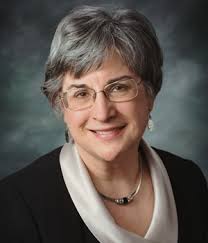Many couples who have used methods of natural family planning testify that using NFP, while not always easy, has been beneficial and sometimes even extremely beneficial to their marriages and their personal spiritual lives. Their testimonies are not difficult to find in the literature of organizations promoting NFP and even somewhat randomly on the proliferating “mommy blogs”. Thankfully this response to NFP is not uncommon and is a testimony that needs to be heard far and wide.
We are also hearing more from people who are unhappy with methods of NFP and also unhappy with those who promote it. The complaints they have are not surprising; they find that NFP requires too much abstinence and too much attending to detail at inconvenient times, and that it results in too many children. Most of those making the complaints don’t turn to contraception or recommend that other couples do so. They accept the teaching that contraception is not in accord with God’s plan for sexuality and are willing to accept the challenges of respecting that plan; rather they largely want those who promote methods of NFP to be more honest and acknowledge that it is not all roses for everyone.
Fair enough. I don’t doubt that some NFP promoters do “oversell” it and don’t fully acknowledge that NFP can be quite difficult for some, that it can interfere with spousal intimacy and that the “failures” – babies (adorable gifts from God that they are) really do require a lot of work. It is also fair to point out, that contraception is not the panacea they may think it is, but brings its own set of challenges. It is also important to consider the wide range of reasons why NFP might prove to be difficult. A private conversation I had with a woman who has used NFP in her own marriage and has trained hundreds of couples has opened my eyes to some of the challenges encountered with the use of NFP. She shared her sadness and frustration in knowing that people who are struggling with the confident or effective use of NFP, are often doing so because they have lacked expert instruction, and that frequent and ongoing mentoring by a teacher, or using a method that is a better fit for them, could greatly lessen their apprehension, and increase effectiveness. She shared that some difficulties encountered in using NFP are a manifestation of undiagnosed underlying health problems, such as hormonal imbalances, that an evaluation by an NFP trained doctor can resolve, thereby improving not only a woman’s ability to discern her fertility but her health as well! She noted some difficulty in NFP use may be rooted in marital discord or the kinds of personal struggles we all encounter as we strive to conform our desires to the elevated call to chastity: challenges such as fear and anxiety, lack of self-discipline and lack of generosity. In short, we are all human!
Believe me, I have no desire to throw the blame back on the objectors and, in fact, I can only have sympathy for all those who find difficult something that requires seeking help, requires working on the quality of relationships and requires discipline since I have challenges in those realms myself. I sympathize all the more with those who find the demands of life to be nearly overwhelming because of special challenges, among them those taking care of handicapped children, or aging parents or dealing with their own handicaps, diabetes, alcoholism, health problems, paralysis, and those for whom using NFP is difficult for method based reasons.
Those who continue to use NFP in spite of the difficulties because they want to be faithful Catholics are much to be admired. Most of these folks, from my experience, agree that contraception is incompatible with God’s plan for sexuality and surely that makes their compliance easier. There are also those who don’t really understand or accept the reasoning behind the teaching but who continue to reject use of contraception because they are committed to being faithful members of the Church Jesus established.
Some, however, begin to question the teaching about contraception and thus the status of the Catholic Church as moral teacher as well. They believe their lives would be markedly better if they could use a condom now and then and that they should be permitted to do so. They want their experience and judgment honored.
The claim is made that old, celibate men who have no experience of the challenges of marriage and parenthood are responsible for teaching that contraception is not in accord with the goods of marriage. Sigh. They seem to forget that those old, celibate men have the guidance of the Holy Spirit and that the gift of infallibility in respect to moral matters comes with it. Moreover, a very large number of those who find contraception incompatible with God’s plan for sexuality are husbands, wives, fathers and mothers. They speak from experience and find that their experience confirms the truth that contraception does not permit the complete self-giving that is to be a part of the sexual act.
Some claim the Catholic morality makes exceptions to other acts—-although killing is always wrong, self-defense is moral; although stealing is wrong, it is right to take food when starving, etc. The fact is that none of these are truly “exceptions”, they are only apparently so. It is not killing that is always wrong; it is murder or the killing of the innocent that is always wrong; it is not taking something that belongs to another that is always wrong, but it is, as the Catechism states “taking something against the reasonable will of the owner” and a reasonable owner would sacrifice property to feed the starving. The teaching about contraception is reasonable as well; while it is always wrong for spouses to have sexual intercourse and shut God out of the baby-making arena, women may use a contraceptive for self-defense against impregnation by a rapist. It is frustrating to have people misrepresent the teaching of the Catholic Church and then basically accuse it for lacking nuance and consistency.
Then there is the “conscience” question. Aren’t people supposed to do what their “consciences” tell them? It must be acknowledged that some of those who reject or are unconvinced about the immorality of attempting to thwart the procreative possibility God wrote into the sexual act, have done their best to understand and accept that teaching. Wouldn’t they, then, be acting in good conscience if they use contraception (at least non-abortifacient contraception)? What about those who have tried to understand why fornication or masturbation or adultery or pornography or racism are wrong and just can’t seem to get it? They feel they “must” participate in such and don’t feel guilty about their behavior. Why shouldn’t they “Just follow their conscience”?
Yes, it can be confusing to hear that “You need to follow your conscience but not if your conscience says to use contraception or be a racist (for example)—for that is an erroneous conscience.” But if you understand the job of the conscience, it is not so confusing.
You see, the job of the conscience is not to decide if abortion or racism or contraception is right or wrong. Those are truths that an informed conscience (synderesis, really) by virtue of natural law (with the help of revelation and the magisterium) learns and then knows—not judges or decides—to be right or wrong. It is on the basis of that knowledge that the conscience then decides if a certain action is in accord with the moral truths it already knows. With the guidance of prayer, consultation with others, etc. the person of good conscience works out whether a given action—say some treatment for an ectopic pregnancy—is an abortion or is not. Abortion is always wrong and that can easily be known through reason and Catholic moral teaching; how to treat every threatening pregnancy is not so easily known and thus a person after due consultation and deliberation must make a decision in good conscience.
Consciences that don’t align with the moral teachings of the Catholic Church are pitting private opinion against the guidance of the Holy Spirit. Some find the claim of the Catholic Church to certitude, to be offensive and inauthentic and even abusive and not in accord with their sense that things are just not that black and white. Well, o.k., those who occupy that space are free to do so but it is not clear why the Catholic Church needs to share their uncertainty or why it needs to accommodate their vacillating perspectives, sometimes back and forth on the same issue. At the end of the day, either the Catholic Church is right that contraception is never in accord with God’s plan for sexuality or it is wrong. Is there room in the Catholic Church for those who think it is wrong about contraception, or abortion, or racism? Yes, of course, and I hope they stay but remember that it is one thing to say humbly, “I just can’t get the teaching and feel I must follow my own reasoning”, and another thing to say, “The Catholic Church MUST honor my ‘right’ to follow my own reasoning.”
I sympathize a great deal with those for whom acceptance of moral truths on any matter brings great hardship. My work with the Courage apostolate has put me in contact with many individuals who carry the cross of same-sex attraction—a cross that surely rivals the very different cross of those who struggle with NFP. When they first commit to a life of chaste celibacy, they fear a lifetime of dreadful loneliness. They often do experience long periods of heartbreaking loneliness but as they grow spiritually and learn to build chaste friendships, their “solitary” lives become fruitful and beautiful in many ways. The cross and the resurrection are closely related.
Those who think contraception is in accord with God’s plan for sexuality could easily find a church that aligns more with their views. But, understandably, they don’t want to leave the Catholic Church, and, again, I don’t want them to go. I hope they can come to share the view of a same sex attracted person who doesn’t understand the Catholic Church’s teaching on sexuality but accepts it, who said: “I trust the Catholic Church to give me Jesus in the Eucharist. I think I should trust her moral teachings, too.”
 Janet E. Smith, PhD, holds the Father Michael J. McGivney Chair of Life Ethics at Sacred Heart Major Seminary in Detroit. She is the author of Humanae Vitae: A Generation Later and of the Right to Privacy, editor of Why Humanae Vitae Was Right: A Reader, and lead author of the Affirmation of the Church’s Teaching on the Gift of Sexuality, co-signed by over a thousand Catholic scholars. Over two million copies of her talk Contraception Why Not have been distributed. She will be a featured keynote presenter at the 50th Anniversary of Humane Vitae, Faithful to God’s Design, to be held July 27-28, 2018 at the Ontario Convention Center, in Southern California. The video recording of Dr. Smith’s presentations at the HV50 Celebration can be viewed here
Janet E. Smith, PhD, holds the Father Michael J. McGivney Chair of Life Ethics at Sacred Heart Major Seminary in Detroit. She is the author of Humanae Vitae: A Generation Later and of the Right to Privacy, editor of Why Humanae Vitae Was Right: A Reader, and lead author of the Affirmation of the Church’s Teaching on the Gift of Sexuality, co-signed by over a thousand Catholic scholars. Over two million copies of her talk Contraception Why Not have been distributed. She will be a featured keynote presenter at the 50th Anniversary of Humane Vitae, Faithful to God’s Design, to be held July 27-28, 2018 at the Ontario Convention Center, in Southern California. The video recording of Dr. Smith’s presentations at the HV50 Celebration can be viewed here

